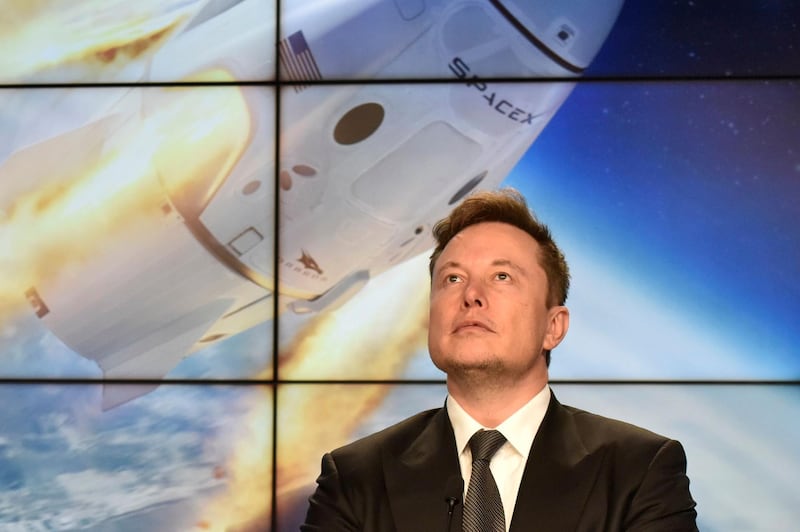Trains of twinkling lights have been spiralling across the skies of Europe this week and on Wednesday evening dozens more are set to join them.
Many might be forgiven for wondering if an alien invasion had been taking place with the influx of crafts above their heads but the phenomenon is actually a result of Elon Musk’s latest SpaceX venture.
His company is releasing a network of "Starlink" satellites into the skies to ensure even the remotest parts of the world will have access to the internet.
But the move is causing controversy among the astrological community, with some scientists contending that the satellites are polluting the night sky and affecting observatories and research.
Dr Robert Massey, deputy executive director of the Royal Astronomical Society, said: “There is a question of ownership over who does own the sky above us.
“Instead of seeing a pristine view of the planets and stars, now you will have it affected by the flashing lights in a similar way to planes continually entering a major airport.
A quick note about #Starlink
— VirtualAstro (@VirtualAstro) April 22, 2020
Presently, the Starlink satellites are a wonder to behold and are getting many people outside looking up at the night sky during #lockdown
They could however, ruin the night sky for stargazers when over 30,000 of them are in orbit.
(Please RT)
“The satellites affect our images and affect the work of observatories that are monitoring the night sky. They take images of the sky and the satellites affect them and show up as streaks going across them.”
Comedian and astronomer Dara O Briain has complained about the issue also. “There goes the night sky,” he tweeted.
Yep, just saw them too. It’s the Starlink satellite network, and Elon Musk wants to put a 1000 of them up. There goes the night sky. https://t.co/mEUKoaQYPF
— Dara Ó Briain (@daraobriain) April 19, 2020
Dr Massey has called for discussions with SpaceX and the wider community to look at measures to reduce the negative impact of the satellites in the future.
Last year, Amazon also filed for permission in the US to create a network of more than 3,000 satellites.
“We need deeper understanding on the issue and international treaties need to be bolstered to protect the skies,” he added.
“We could see multiple operators following suit in the future and launching more, and curbs need to be put in place.
“SpaceX is wanting to engage with us and we need to look at traffic management. We are working with them on the problem to ensure the impact is minimised.”
With a more favorable weather forecast for launch and landing, now targeting Wednesday, April 22 at 3:37 p.m. EDT for this week’s Falcon 9 Starlink mission
— SpaceX (@SpaceX) April 20, 2020
SpaceX has brought forward the launch of its seventh batch of satellites due to weather and will be releasing a further 60 on Wednesday at 19.37pm (GMT).
They will be launched from Cape Canaveral Air Force Station on a Falcon 9 rocket.
The idea is for the satellites to provide constant, high-speed internet access to developing countries. Due to their low obit, the satellites have been visible over the past few nights across Europe.
More than 300 have been launched since last May and SpaceX has permission to send a further 12,000 into orbit in the next five years. It has also applied for authority to launch a further 30,000.







